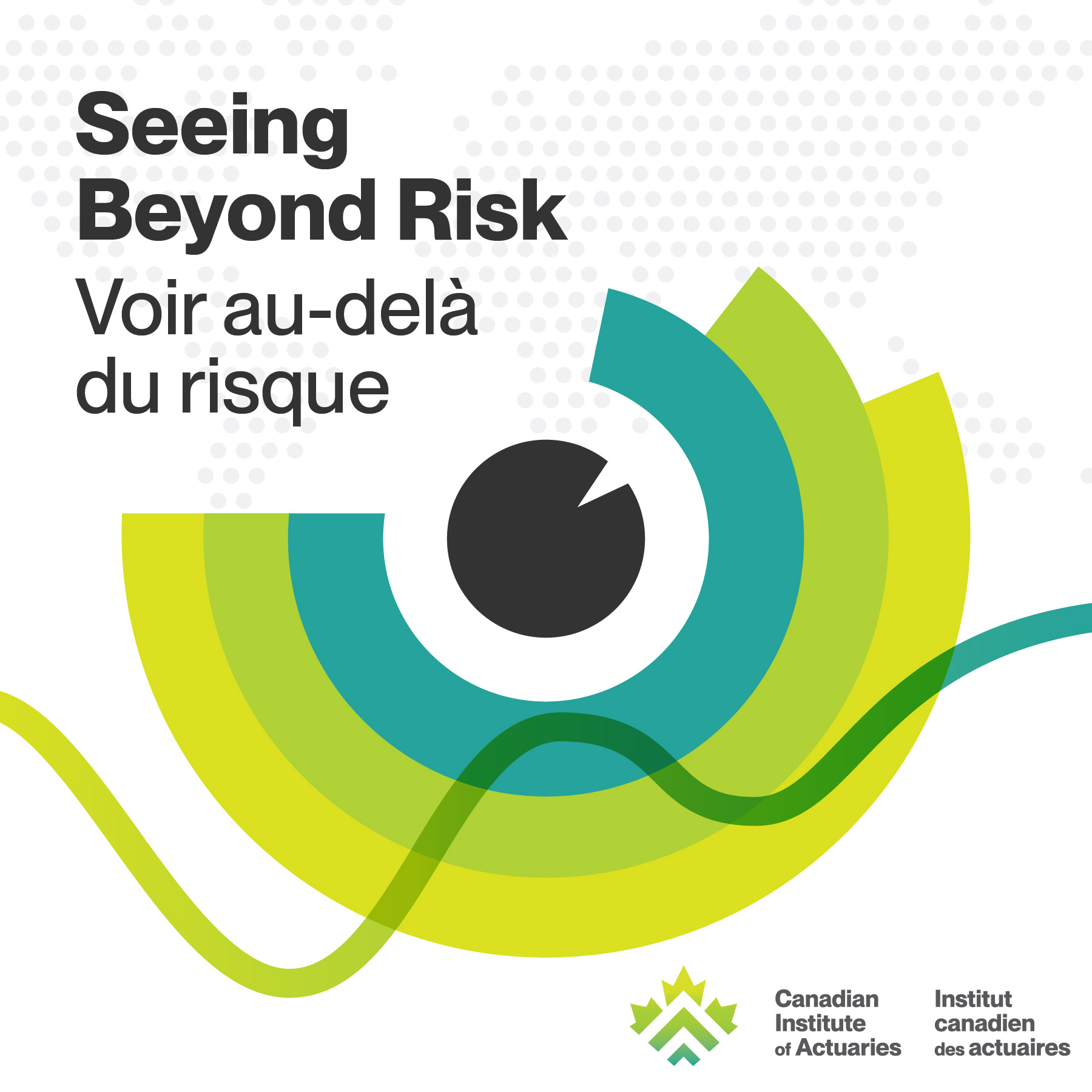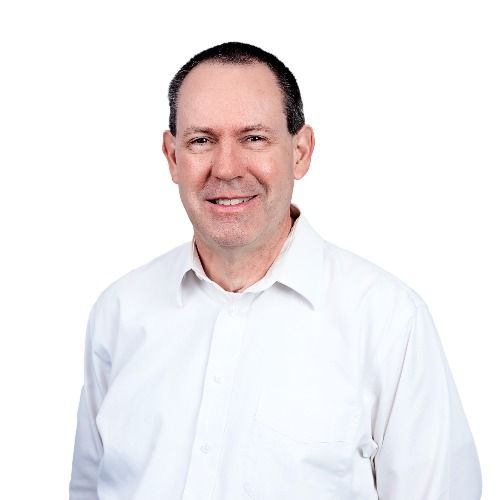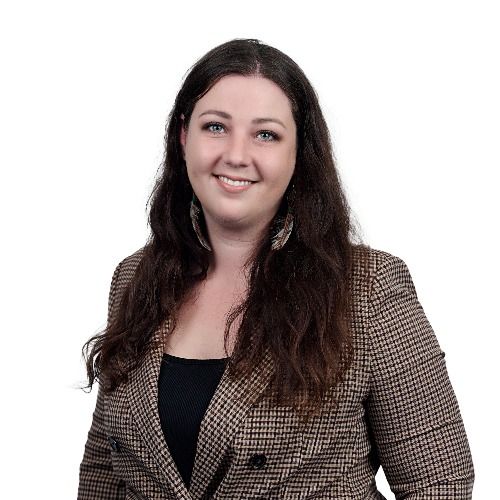Episode 158: Celebrating Black History Month with Kimaada Boyce
February is Black History Month, and in recognition of this event, the CIA is speaking to members of the actuarial community to hear their reflections. In this episode, Kimaada Boyce, ACIA, talks to us about her experiences and the importance of the International Association of Black Actuaries (IABA). (In English)
Listen to our French podcast with Marc-Edouard Kernisant, ACIA.
Transcript
Welcome to Seeing Beyond Risk, a podcast series from the Canadian Institute of Actuaries.
Fievoli:I’m Chris Fievoli, Actuary, Communications and Public Affairs at the CIA.
Fievoli:This year, in recognition of Black History Month, we are speaking to members of the Canadian actuarial community to get their perspectives on this event and what it means to them.
Fievoli:Today, we’re joined by Kimaada Boyce, an Associate of the CIA.
Fievoli:Thanks very much for joining us today on the podcast.
Boyce:Thanks, Chris. Thanks for having me. Very happy to be here today.
Fievoli:Great. To start off, maybe just give us some of your background, how you decided to pursue actuarial science as a career, and how did you find out about the profession and what influenced you to move in that direction?
Boyce:When I was very young, I wanted to be a lawyer, because I loved to argue and I was also very good at it. But I really didn’t like to read, and in law school, you spend most of your days reading, so I was like, “Nope, that’s not going to work.”
Boyce:But I always loved math and solving problems, and I was very good at that, which is what drove me down the math and business route at my high school in Trinidad and Tobago.
Boyce:I wasn’t exactly sure what I was going to do career-wise with math – I was thinking maybe an accountant or an economist.
Boyce:And then in my second-to-last year of high school, a rep from the University of Waterloo visited my school to talk about the university and the programs offered, and he mentioned that Waterloo had a popular and renowned actuarial science program.
Boyce:And then he went on to explain what actuarial science was, because most of the faces in the room were like, “Huh?” when he mentioned actuarial science.
Boyce:And then after he explained what it was, I immediately knew that it was the career for me because it encompassed all my favourite things, like math, statistics, economics.
Boyce:So it was from that moment that I started to pursue the career, with the first step being successfully applying to the University of Waterloo’s actuarial science program.
Boyce:Then I moved from Trinidad to Canada to attend UWaterloo, and I was also enrolled in the co-op program, so I did many actuarial co-ops, which kind of solidified that this was the profession I wanted to follow.
Boyce:And then I graduated in 2018 and landed my first full-time job at The Co-operators, and I’ve been there almost five years now.
Boyce:So yeah, that’s a little bit about my journey to choosing the actuarial profession.
Fievoli:As we’re recording this morning, it’s the day after a snowstorm, so I must ask: how was the transition coming from Trinidad and Tobago to Canada? How did you manage that? [Chuckle]
Boyce:[Chuckle] The transition was a little rough, weather-wise. I think my first winter here was brutal. It was the 2014 winter.
Fievoli:Oh, I remember that.
Boyce:Yeah, which was a bad one. [Chuckle] So it was brutal, but now I’m a bit used to it, so it’s not too bad.
Boyce:The last few days have been cold. And when I talk to my family in Trinidad and it’s warm and sunny, I’m like, “Ugh, did I make the right decision?” [Chuckle] But you know, it just for a few months.
Fievoli:Yeah, exactly. That’s the right perspective.
Fievoli:OK, let’s talk a little bit about your current work responsibilities – who you’re working with, and what are some of the more interesting things that you come across in your day-to-day work that you’d like to talk about?
Boyce:I currently work for The Co-operators, as I said. I work in the individual life insurance pricing team.
Boyce:Our team is responsible for the pricing and design of our individual life insurance products, like term, whole life, universal life, critical illness, etc.
Boyce:We ensure that our products are designed and priced at a level where they are competitive in the market and profitable.
Boyce:And I think they are always interested in things or problems in our pricing rule, especially because we’re trying to balance competitiveness and profitability, which isn’t always easy or straightforward, especially because each product is so different.
Boyce:For example, how we would approach the reprice for our term products would look way different than how we would approach our reprice for our universal product.
Boyce:And even looking at one product itself, like one year’s reprice, we face different problems and have to create different solutions than a subsequent reprice for that same product.
Boyce:So, I would say, most of my day-to-day interest in things or problems surrounds finding appropriate solutions to strike that perfect balance between making sure products are profitable and also remain attractive in the market.
Fievoli:Now we want to get your perspective on the importance of Black History Month. Maybe you can share with us what it means to you and how you are commemorating this event.
Boyce:So for me, Black History Month is important because even though I do celebrate being Black every day, it is an opportunity for everyone, including myself, to celebrate and appreciate the many contributions that Black people have made to society.
Boyce:And it’s also a time where we can raise awareness and reflect on the history of Black people and also the struggles and systemic issues that we still are facing today.
Boyce:And I include myself in this too, because even though I am Black, and I do live my Black experience every day, every year during Black History Month, I learn so much more about the history of Black people here in North America, the various and countless contributions and experiences of Black people throughout history.
Boyce:And I learn about areas of Black culture that even I may not have been previously exposed to.
Boyce:For example, last year during Black History Month, I remember I learned that a Black man named George Speck, better known as George Crum, invented the potato chip, which I thought was just very cool, and I didn’t know that before last year’s Black History Month.
Boyce:It’s important for everyone to take the opportunity to appreciate and acknowledge how Black people and Black culture contribute to all aspects of our society, while educating ourselves on the systemic issues that Black people still face today and being allies to help eradicate these issues.
Boyce:And in terms of me particularly celebrating, I try to celebrate Blackness every day, but I usually use Black History Month as an opportunity to give extra support to Black-owned businesses.
Boyce:I attend Black History Month celebrations. I make an effort to learn more about Black figures and their contributions, and I try to use my voice to help increase awareness surrounding Black history, culture and experiences, and educate people on important issues faced by the Black community here in Canada.
Fievoli:I was also hoping you could share with us some thoughts about the International Association of Black Actuaries.
Fievoli:Could you fill us in on what that organization does and what sort of initiatives and events they happen to sponsor?
Boyce:I am the leader of the Toronto affiliate of the International Association of Black Actuaries, commonly known as IABA.
Boyce:IABA is a volunteer-based organization dedicated to increasing the number of successful Black actuaries through programs that address the underrepresentation of Black people in the profession.
Boyce:IABA also provides a much-needed community for Black actuarial professionals and students, with around 11 city affiliates throughout North America.
Boyce:Two of the newest affiliates were established in 2019 in Canada, and those are the Toronto and the Montreal affiliates.
Boyce:A crazy statistic that I learned when I joined the organization is that less than 2% of actuaries in North America are Black, and the reason for this is that there are many barriers that exist for diverse candidates at each stage of the career pipeline.
Boyce:For example, there’s little awareness about the field, so most Black candidates don’t learn about the profession until after high school, resulting in less preparation for the courses required for the profession.
Boyce:And usually Black candidates also have fewer connections, if any at all in the field, making the connections with mentors, internships and job opportunities far more difficult to obtain.
Boyce:Another barrier is time and cost associated with the exams, resulting in decreased prep time and thus an increase in exam failures and a number of candidates leaving the profession.
Boyce:Generally, candidates experience many roadblocks and they discontinue the pursuit of the career at each stage of the pipeline at a much higher rate than other races and ethnicities, and IABA seeks to address these barriers and provide tools and programming to support candidates on their path to becoming an actuary.
Boyce:Some of the ways that IABA is trying to address these issues are by increasing awareness of the profession through outreach.
Boyce:For example, last year, the Toronto affiliate partnered with the CIA and other organizations to participate in several high school outreach events, where we raise awareness about the actuarial profession, specifically in minority communities and schools.
Boyce:IABA also provides financial support through the IABA scholarship, which has awarded over $1 million in scholarships to university students.
Boyce:They also have an exam reimbursement program, which gives Black students financial support to sit exams.
Boyce:IABA is all about building networks. There is an IABA bootcamp program that is like a multiday soft skills program that culminates in one-on-one interviews with some of the industry’s top employers.
Boyce:There’s also an annual meeting that’s hosted every year and that draws close to 500 attendees across all levels and practice areas, and it’s a premier destination for professional networking and a great place to connect with mentors at all levels.
Boyce:And then I would say locally, the Toronto and Montréal affiliates organize various outreach, social and professional events throughout the year.
Boyce:We’ve done things like game nights, happy hours, joint speaker series events with top employers, professional networking events, and high school and university outreach events, to name a few.
Boyce:And our first event for 2023 is a joint Black History Month event with the CIA held on February 24 in Toronto, where we’ll enjoy an evening of food, culture and connection.
Boyce:The registration for that event is open, so I would check out the CIA events page for more details on the event and the registration link to sign up.
Fievoli:Great, well thank you for sharing the information today, and thank you for coming on the podcast to speak with us.
Boyce:Of course. Thanks for having me, Chris.
Fievoli:If you enjoyed today’s conversation, we invite you to subscribe to our podcast series and catch up on prior episodes.
Fievoli:As well, if you have ideas for a future episode or you’d like to contribute to our Seeing Beyond Risk blog, we would love to hear from you. Contact information can be found in the show description.
Fievoli:Until next time, I’m Chris Fievoli and thank you for tuning in to Seeing Beyond Risk.



